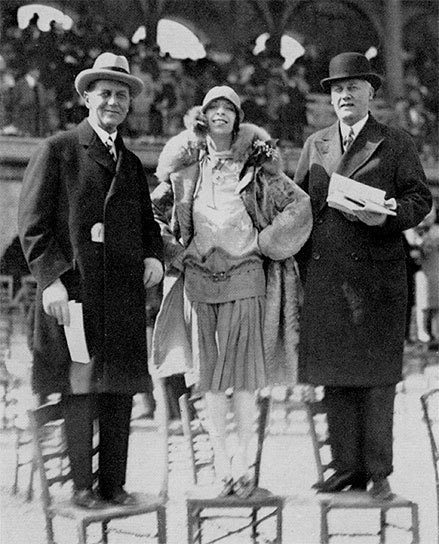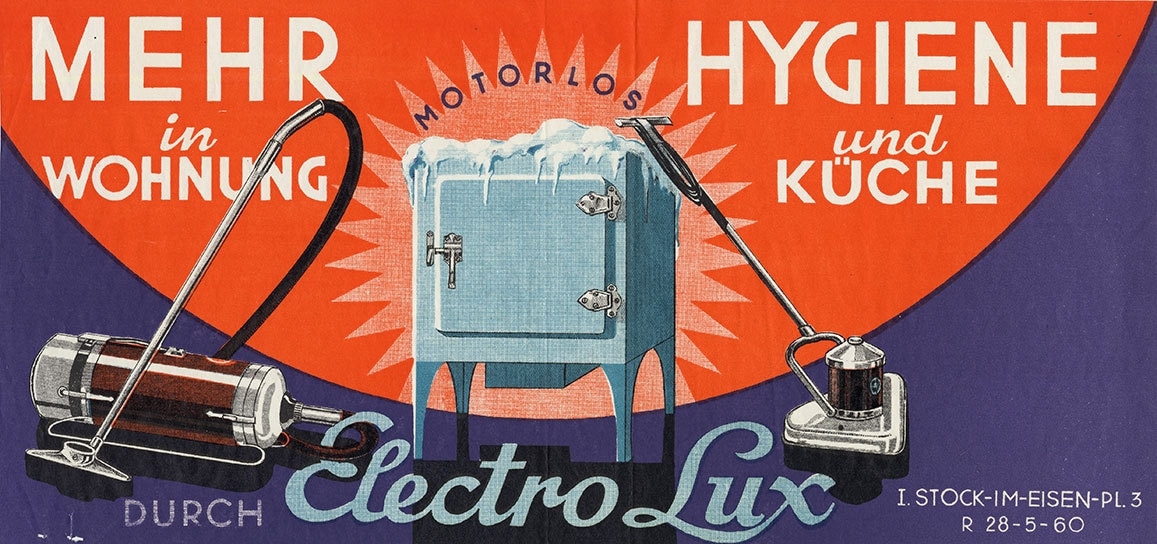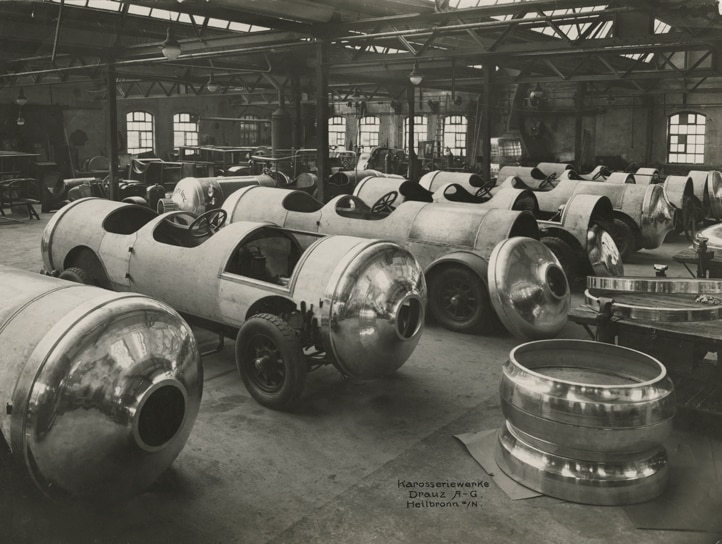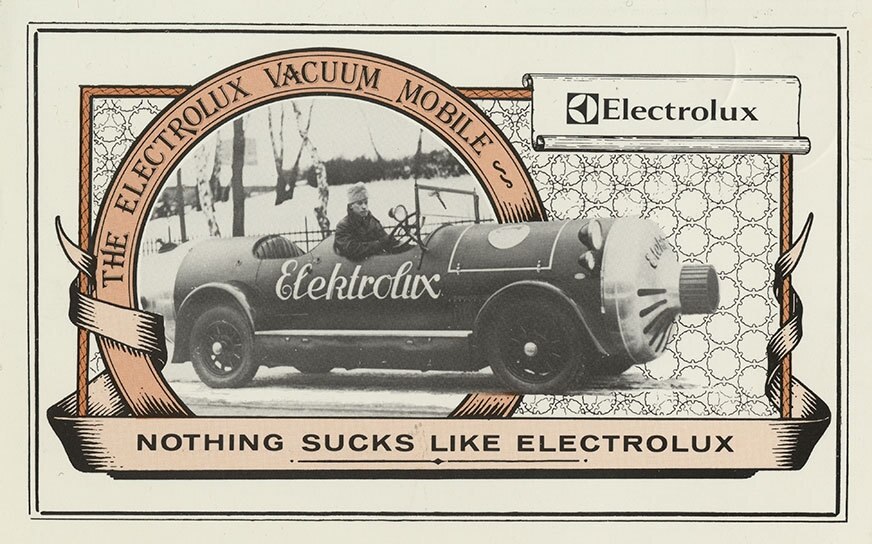In contrast to other well-known Swedish entrepreneurs, Axel Wenner-Gren was neither an inventor nor an engineer. His great strength was his energetic, imaginative and unconventional approach to sales and marketing.

Axel and Marguerite Wenner-Gren visiting Paris together with Sten Aurell who was responsible for the U.S. business
Flamboyant, self-confident and unashamedly ambitious, the founder of Electrolux was different to his countrymen. Even during his teens, Wenner-Gren had shown an interest in sales. After studying in Germany as a young man, he returned to Sweden and began to build up a sales force to market the new Electrolux products. He became famous for his ability not only to listen but also to egg on his salesmen with training, contests, newsletters and other activities, not to mention bragging about his own achievements.
The legendary story of how he sold a vacuum cleaner to the Vatican is a part of company mythology. Five companies were competing for a sale and each had a piece of carpet to clean. After the competitors had done theirs, Wenner-Gren re-cleaned their four samples with the Electrolux machine, filling the dustbag and displaying how much more effective it was. The sale was his.

Austrian advertisement for multiple products under the theme of hygiene
Hygienism had an enormous effect on Electrolux’s early marketing. In this period, politicians and intellectuals were constantly discussing how to encourage citizens to live more hygienically by means of technology, design and better communication. In the Functionalist society, the vacuum cleaner would be the most important tool, in combination with white goods and living areas and materials that were easier to clean. Customers were keen for more information and a pep-talk on the new healthier way to live. Electrolux saw their opportunity and in the early adverts, dust, dirt and the Electrolux Method for keeping your home clean are constantly mentioned. What is more, the company established its scientific credentials by cooperation with the Karolinska Institute and later The Swedish Home Research Institute (BFI).
Full speed ahead
Advertising slogans are now an everyday part of life. However, when Electrolux started to use them, they were something very new. The first was “Every home an Electrolux home” and it is attributed to Wenner-Gren himself.

Construction of Electrolux cars at Karosseriwerke Drauz AG, Heilbronn, Germany
The automobile and the vacuum cleaner came of age at much the same time. Electrolux saw a possibility for publicity in this and built eye-catching cars shaped like vacuum cleaners. The car chassis came from Citroen and the cars were built in Germany and Denmark. These remarkable vehicles attracted a lot of attention when they drove round the streets of Stockholm, Berlin and London.
The cars had an important role to play in 1927, when an enormous international sales conference was held in Berlin. A race and contest was set up between teams of salesmen: four plus a chauffeur in each Electrolux car. During the ten-day journey to the capital, each team had to sell as many vacuum cleaners as they could. As a grand finale, the cars were parked in formation outside the Berlin Palace to form the world Lux.
As icing on the cake, there were even special Electrolux motorbikes.
The Southern Cross
By the 1930s Wenner-Gren had become one of the wealthiest men in the world and he bought one of the world’s most luxurious boats: the Southern Cross. His luxurious lifestyle and tireless travels were one long marketing campaign for his company’s products. In this, he had much in common with media-savvy entrepreneurs of today. In 1936, President Roosevelt invited Axel and Marguerite for a weekend at the White House. The vacuum cleaner salesman from Uddevalla had truly arrived.

The Wenner-Grens owned their own private yacht – the “Southern Cross” which was previously owned by aviation billionaire Howard Hughes
Electrolux and the elephant in the room
In the early advertising campaigns for Electrolux, elephants often appear, usually blue in color and waving their trunks. The origin of this is unclear, but as both vacuum cleaners and elephants are experts at sucking and blowing, there is a very logical connection. And what is more the elephant is often used to represent strength, loyalty, good memory, patience, wisdom and marital bliss. All qualities which the company would be pleased to be associated with.
A live elephant appeared in a UK TV ad for Electrolux in the 1970s. Its job was not to suck, but to trample a large bag of crisps which the Electroluc 506E then vacuumed up very effectively. The slogan used in that ad campaign is now notorious: Nothing sucks like an Electrolux.
There was an urban myth in the advertising world that the naïve Swedish company were unaware of a double meaning here. It is no compliment in the US to say that something sucks. However, this story has now been debunked.


